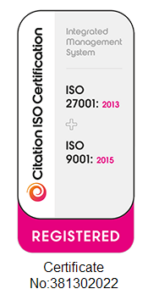How Safe is Your Space? Navigating Compliance for Physical Meetings
“An incident is just the tip of the iceberg, a sign of a much larger problem below the surface.” – Don Brown
Talk of a return to physical or hybrid events means organisations have to think more carefully about event compliance.
What social distancing policies do venues have in place? How about cleansing and hygiene policies?
A lot of venues are thinking through these steps and putting protocols in place, but there are also considerations for organisers. It’s not uncommon for event organisers to hand out devices during a session, but how will that work undercurrent circumstances?
If you’re handing out 400 iPads, how will you ensure they are safely cleaned and handled?I have researched disposable iPad covers with built-in antibacterial cleaning solutions to cover devices and make them safer for users. This certainly makes sense for event locations and device companies. Alternatively, it’s a driver for increased use of own devices, aka ‘BYOD’.
Even the logistics around managing the technology for speakers may raise concerns.
For example, in physical meetings the AV team normally stand by to attach the mic to the speaker. How do you safely do that with social distancing? Does the tech person leave the mic on the table, stand two metres away and explain how to attach and use the mic?
There are many layers to health and safety protocols and different groups of people to consider. There is the audience, the speakers and the technology crew. We couldn’t even think about sending our crew on location without making sure they are safe.
But what does that mean? If it’s about sending crew who have had the vaccine, does that mean younger employees who might not have had both shots need to be sidelined?What about having COVID passports? Will that provide people with assurance and protection?
We also need to consider the comfort level of crew members. Our teams have been set up with technology in their homes and feel in control of their health and safety by staying in that environment.
As soon as they start travelling, there are many more things to consider: the journey there, the hotel they are staying in, the setup at the conference, the way they get fed, the way in which they interact with the customer, the client, the speakers and the audience.
Overriding all of this is the fact that many participants don’t want to travel.
They might not have been vaccinated, their organisation might prevent them from travelling, they might have underlying health issues, or they may be worried that if they do travel and an issue arises they will be forced to isolate for 10 days or two weeks when they return. Suddenly, there are all these extra challenges that you need to consider before live events can restart.
Even in the virtual world, compliance is becoming an increasingly pressing issue. We’re starting to hear more questions about platform security as organisers want to know that only whose who have been invited are attending virtual events. There are concerns over whether meetings can be accessed by non-registered participants or overheard by family and friends.
We’re setup to ask audience members to make sure they’re in secure locations and not in public spaces. Often we are involved in events where we ask everybody to turn their cameras on at the start so they can be identified for a quick roll call.
Sometimes people use nicknames for their sign on or they sign on with a company account, so we need to know that each attendee is entitled to be there. We manage annual general meetings where only voting members are allowed to attend (or vote) so if someone joins using a different account or device, we need them to identify themselves.
Another consideration is whether attendees should be allowed to chat to one another privately using the chat function, or whether all conversation should be directed through the organiser. Is there a risk that the chat function could be used inappropriately? Who is ultimately responsible for the chat?
Open Audience has a moderated platform that allows us to prevent and/or take out inappropriate comments and track interactions, which is an important consideration if the chat function will be used.
While the world has become very comfortable and confident with the likes of Zoom and other platforms, attention is increasingly being focused on security and quality.
And that means adding some of the bells and whistles to registration, viewing and attendance criteria, or working with experienced meeting engagement organisations to ensure better control of your virtual events.
Leslie Robertson is the Founder of Open Audience, an audience engagement consultancy that specialises in making life sciences meetings more engaging with more positive, successful outcomes – whether in-person or in the virtual space. The Open Audience team helps to strategise and prepare pre- and post-meeting as well as providing real-time support and guidance during the meeting. Open Audience also offers customisable, multilingual engagement platforms that include interactive polling, surveys, and ideas exchange.

